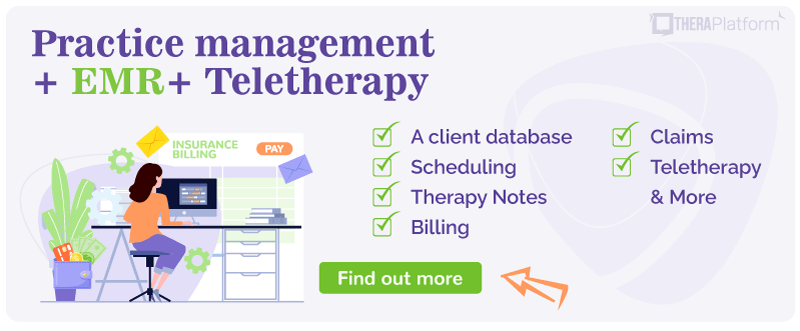70/30 split

A 70/30 split private practice is a type of financial relationship between healthcare providers, such as therapists, and the private practice business or business owner. The 70 refers to 70% of the revenue being received by the therapists or healthcare practitioners and the other 30% is received by the practice or owner.
The 70/30 split private practice is one of several compensation models employed by group practices where the practice keeps a percentage of the charged fee. Other common types of business structures include 50/50 and 60/40.
The goal of a 70/30 split private practice is to create a successful model that fosters a fair and collaborative environment, offers quality services, and aligns with the goals of both the practice and the clinicians. A 70/30 split private practice can also help develop a sense of community, collaboration, and an opportunity to learn from each member’s perspectives.
Rationale for a 70/30 split private practice and alternatives
The 70/30 split private practice allows for fair distribution of revenue between the therapist and practice owner, it allows therapists to attract more clients and incentivizes them to work efficiently to contribute to practice growth. This type of model helps cover the practice costs which may include rent, computers and other hardware, furniture, an assistant, marketing costs, any associated fees and phones. It also allows practitioners to generate revenue via providing their services.
Alternatives to a 70/30 split private practice include clinicians paying a flat rate each month to belong to a practice. In many ways it is simply them paying “rent” or subleasing.”
Other alternative methods may include a contract provider model where providers get “paid by split-fee or per case,” a tiered split where practitioners with seniority may receive a larger portion of the revenue or a performance-based split where revenues are measured by metrics such as productivity.
Financial considerations and revenue sharing
Financial considerations, revenue sharing, and resource allocations play a significant role in the long-term growth and success of a private practice.
Some considerations that need to be taken into account for a successful private practice include the following:
- Financial analysis: Private practices should regularly assess profit and loss and track areas of improvement and need, anticipate expenses or financial challenges.
- Revenue distribution: 70% of the revenue is allocated to the practitioner from the services they provide.
- Practice expenses: Practitioners should manage their taxes and expenses such as facility rentals, EMR software, malpractice insurance, continuing education, and possibly personal equipment or equipment rentals.
Resource allocations
- Client allocations: The practice may distribute client referrals to specific practitioners based on schedule availability, specializations, and client preference.
- Time allocations: Practitioners utilize their time to perform assessments, treatments, treatment planning, and other administrative tasks such as documentation, billing, and communication with other therapists and clients.
- Facility allocations: Practices may distribute therapeutic equipment and facility space so that therapists can treat clients effectively.
Pros and cons of the 70/30 split private practice for therapists and group practices
Each financial relationship comes with its own sets of pros and cons and a 70/30 split private practice is no different.
Pros of a 70/30 split private practice
- Clinicians receive fair compensation from revenue
- Clinicians are incentivized to build a client list
- Clinicians provide a contribution of overhead costs of 30%
- Clinicians have flexibility in their schedule
Cons of a 70/30 split private practice
- Requires meticulous administrative tasks including financial tracking, expenses, insurance claims
- May involve competition for clients
- Variability in schedule and clients
- Variability in caseload and revenue for clinicians
- Clinicians may need to set aside money for taxes as independent contractors
Start 30-day Free Trial and explore TheraPlatform. HIPAA Compliant Video and Practice Management Software for Therapists.
Legalities
For a private practice to be successful, agreements and negotiations are crucial aspects. Contract agreements and negotiations can be based on terms, expectations, and rates. It is important to have critical discussions with the practice owner as well as to have full transparency and communication to comprehensively understand the terms, conditions, standards, revenue-sharing model type, session rates, and overall practice management and regulations.
Overall, a well-structured 70/30 split private practice ensures that revenue distribution is fair, allows for effective resource allocation and overhead costs, allows clinicians to contribute and be actively involved and participate in the growth of the practice as well as in their professional development.
Furthermore, with a well-structured group practice, the allocation of resources such as physical space, client referrals, and administrative tasks promotes the overall effectiveness and efficiency of the group practice.
Additionally, with clear communication and establishing a concise revenue-sharing model, clinicians can thrive and contribute to the overall success of the private practice.
Resources
TheraPlatform, an all-in-one EHR, practice management and teletherapy solution can help make running a larger practice such as a 70/30 split group practice easier through scheduling, easier insurance claims and billing. They offer a free, 30-day trial with no credit card required. Cancel anytime.
References
- Brewer, G. (2018, June 12). Business models for counseling and therapy private practices. The Practice of Therapy. https://practiceoftherapy.com/business-models-private-counseling-practice
- Fava, D. (2017, April 18). How to diversify your income for private practice success. Private Practice Elevation. https://privatepracticeelevation.com/how-to-diversify-income-for-private-practice
More resources
- Therapy resources and worksheets
- Therapy private practice courses
- Ultimate teletherapy ebook
- The Ultimate Insurance Billing Guide for Therapists
- The Ultimate Guide to Starting a Private Therapy Practice
Free video classes
- Free mini video lessons to enhance your private practice
- 9 Admin tasks to automate in your private practice
* This article aims to provide information only and should not be considered tax or advice. Because of the complexity of laws, it’s best to seek expert advice to address the variables in your own personal tax situation.




